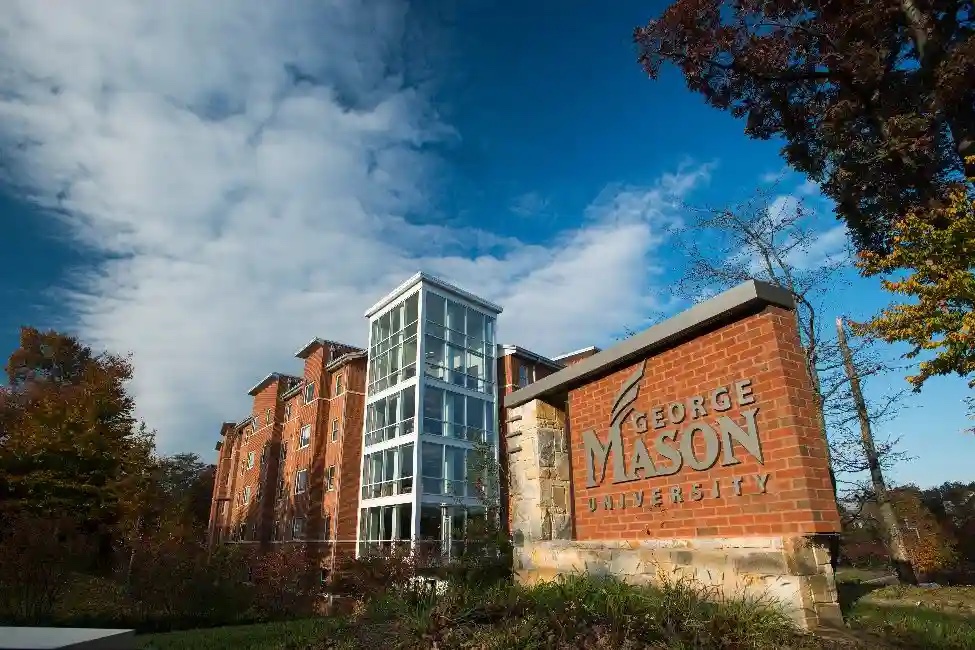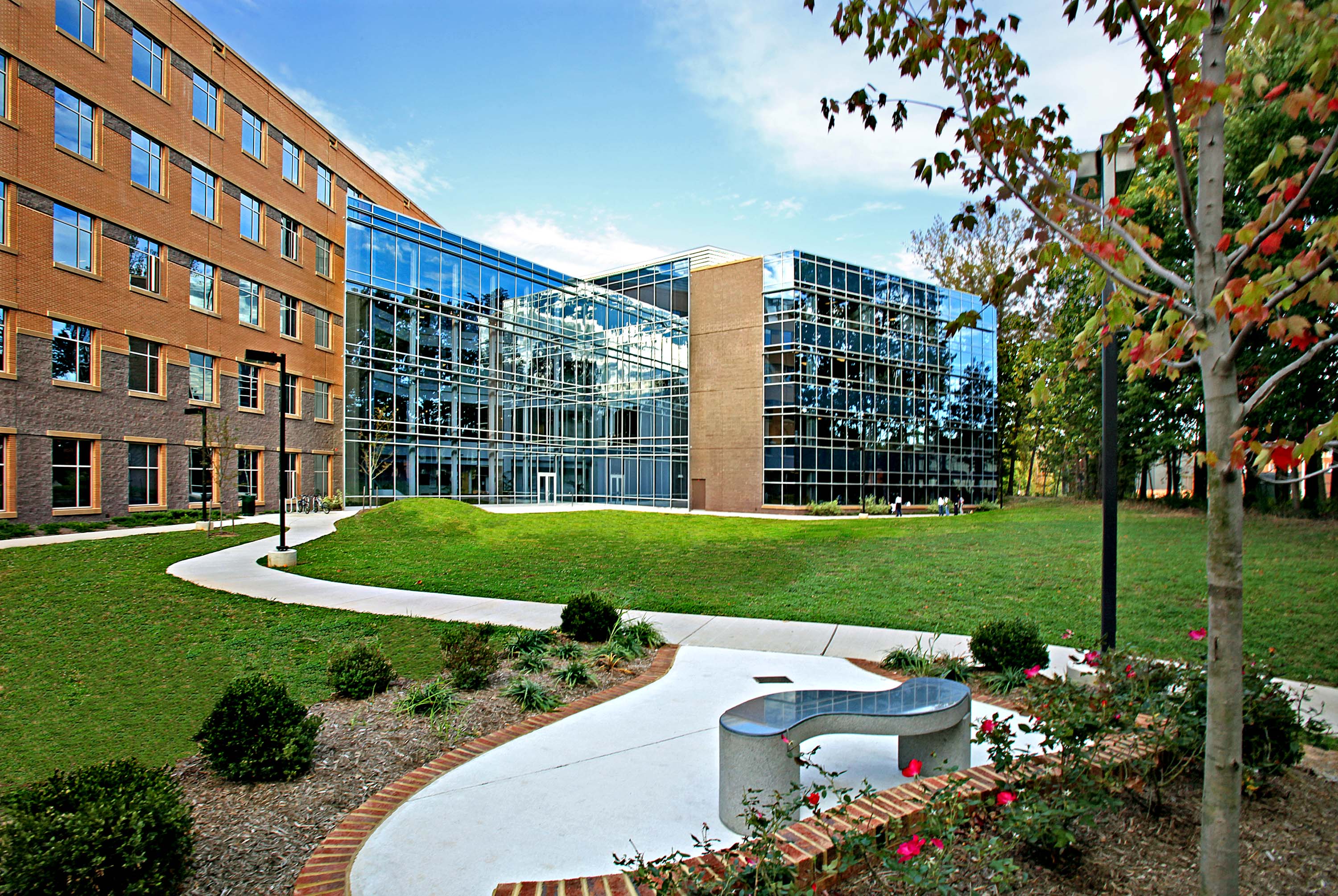General Information
Multiple Ph.D. openings are available in the Computer Science Department at George Mason University across multiple research areas, including, but not limited to, Machine Learning (Theory/Data Mining/NLP/CV), Systems and Networking, Software Engineering, Security and Privacy, and Robotics. All Ph.D. students are fully funded. Interested students are welcome to reply to this post or contact our faculty members (emails listed below). Please put `[Prospective PhD Student]` in the email subject when sending emails. If you want to pursue a Ph.D. in an area that is not listed below, please contact any faculty that conducts research in a related field.How to Apply
- [Program Information]
- [Application Link]
- Deadline: Dec. 1, 2022 (for Fall 2023 admission with full financial support)
- [English Requirement]: Demonstration of English language proficiency is required for international students (Duolingo also accepted)
GRE is NOT required for Fall 2023 Applicants, but is strongly recommended for international applicants who don't have a prior degree from the USA.
Research Areas
Here we mainly list areas where junior assistant professors are seeking Ph.D. students. A complete list of research areas can be found at the GMU-CS website here.Machine Learning
Contact: Mingrui Liu (mingruil AT gmu DOT edu), Fang-Yi Yu (fangyiyu AT gmu DOT edu)
The Machine Learning group is looking for self-motivated students who are interested in designing provably efficient algorithms for solving cutting-edge machine learning problems with elegant mathematical/theoretical foundations, and understanding the interaction between machine learning and society. The main research topics include mathematical optimization for statistical learning theory, deep learning, federated learning, and its applications in economics and edge computing. We regularly publish papers on top venues, such as NeurIPS, ICML, ICLR, SODA, and EC. Students can potentially work with Dr. Mingrui Liu, Dr. Fang-Yi Yu, Dr. Grigory Yaroslavtsev, or Dr. Sanmay Das. Students who have a strong mathematical background are strongly encouraged to apply.
Data Mining
Contact: Ziwei Zhu (zzhu20 AT gmu DOT edu)
The data mining group at GMU conducts research covering a wide range of core data mining and machine learning topics, including but not limited to recommender systems, learning-to-rank, time series mining, financial data mining, educational data mining, social network analysis, graph mining, etc. Our faculty members regularly publish papers in top-tier data mining and information retrieval conferences, such as KDD, SDM, WSDM, ICDM, SIGIR, CIKM, WWW, and other machine learning and AI related venues. Students can potentially work with any faculty in the data mining group, including: Ziwei Zhu, Jessica Lin, Grigory Yaroslavtsev, Carlotta Domeniconi, and Sanmay Das. Students with relevant experience in general data mining, information retrieval, machine learning are encouraged to apply.
Software Engineering
Contact: Wing Lam (winglam AT gmu DOT edu); Thanhvu H Nguyen (tvn AT gmu DOT edu); Kevin Moran (kpmoran AT gmu DOT edu)
The software engineering group at GMU is looking for self-motivated doctoral and master’s students with a strong academic background in Software Engineering, Formal Methods, Programming Languages, Human Computer Interaction, or Machine Learning. The group consists of 14 faculty members that are working on research projects in the topics of Software Testing and Analysis, the synergy between AI and Software Engineering, Fairness and Bias Detection, Software Evolution, Software Dependability, User Interfaces, Mining Software Repositories, Distributed Systems, and Mobile Computing. Our software engineering group is among the top 10 within the last five years in the USA, according to csrankings.org. Students who are interested in software engineering can work with any faculty in the software engineering group, including but are not limited to Wing Lam, Brittany Johnson, Kevin Moran, Thanhvu H Nguyen, Thomas LaToza, Paul Ammann, Jeff Offutt, and David Rosenblum. Our faculty members regularly publish papers in top-tier conferences, such as ICSE, ESEC/FSE, ASE, ISSTA, TACAS, PLDI, OOPSLA, CHI, VL/HCC, and AAAI. Students with interest in the aforementioned topics are encouraged to apply.
Security and Privacy
Contacts: Xiaokuan Zhang (xiaokuan AT gmu DOT edu); Lannan Lisa Luo (lluo4 AT gmu DOT edu); Qiang Zeng (zeng AT gmu DOT edu)
The security group is looking for self-motivated students to join our group and tackle cutting-edge security problems. Our faculty members regularly publish papers in top-tier security conferences, such as ACM CCS, USENIX Security, NDSS, and S&P. The research interests include the broad area of System and Software Security, and Privacy, including side channels, mobile security, IoT security, blockchain security, binary code analysis, etc. The students can potentially work with any faculty in the security group, including but not limited to: Xiaokuan Zhang, Qiang Zeng, Lannan Lisa Luo, Dov Gordon, Foteini Baldimtsi, Eric Osterweil, Giuseppe Ateniese, Evgenios Kornaropoulos, Xinyuan Wang. We also collaborate with other faculty members from the Department of IST and ECE such as Kun Sun, Xiaonan Guo, Jianli Pan, Zhisheng Yan, and Kai Zeng. Students with experience on ACM-ICPC/CTF competitions or publications in Security conferences are encouraged to apply.
Systems & Networking
Contact: Lishan Yang (lyang28 AT gmu DOT edu)
The systems group is looking for highly-motivated students who are interested in system research to join our group. There are plenty of ideas, funding, and computing resources. Our research covers the broad areas of computer systems, including system reliability, computer architecture, networked systems, wireless networking, sensors, internet of things (IoT), and mobile computing. Our faculty members regularly publish papers in top-tier system conferences, such as MICRO, ASPLOS, USENIX ATC, SC, NSDI, Sigmetrics, IMC, MobiSys, and MobiCom. Students can potentially work with any faculty in the systems group, including: Lishan Yang, Shuochao Yao, Parth Pathak, Bob Simon, Bo Han, and Songqing Chen. Students with experience in design, implementation, and programming of computer systems and networking, architecture, and the Linux kernel are strongly encouraged to apply.
Robotics
Contact: Xuesu Xiao (xiao AT gmu DOT edu)
The robotics group at GMU performs a wide range of research including motion planning, machine learning, and computer vision. The group also has a focus on deployable field robotics with a fleet of state-of-the-art robot platforms. Our faculty regularly publish at top-tier robotics conferences such as ICRA, IROS, RSS, CoRL, SSRR, etc. The robotics group has a collaborative environment among all robotics faculty, including Xuesu Xiao, Sean Luke, Jana Košecká, Erion Plaku, and Gregory Stein, and other interdisciplinary faculty from ECE (Xuan Wang, Ningshi Yao, Felipe Veiga, and Camera Nowzari) and ME (Daigo Shishika and Leigh McCue). Any candidate with relevant experience in robotics, motion planning, machine learning, and computer vision is encouraged to apply. Hands-on knowledge in robotics hardware, field experience, and a good publication record is strongly preferred.
Natural Language Processing
Contact: Ziyu Yao (ziyuyao AT gmu DOT edu)
The NLP group at GMU CS (https://nlp.cs.gmu.edu/) conducts research covering a wide range of topics such as machine translation, multilingual NLP, low-resource and endangered languages, question answering, text generation, language-to-code generation, human-AI interaction, efficient NLP, etc. Our faculty regularly publish at top-tier venues such as ACL, EMNLP, NAACL, TACL, ICLR, AAAI, WWW, etc., and have served as area chairs and organized multiple workshops at these conferences. The NLP group at GMU includes Dr. Antonios Anastasopoulos and Dr. Ziyu Yao from CS, as well as Dr. Marcos Zampieri, Dr. Kevin Lybarger, and Dr. Ozlem Uzuner from IST. Students with relevant experience are encouraged to apply.
About GMU-CS
More up-to-date information can be found at the website of dynaroars Lab led by Prof. ThanhVu Nguyen.
GMU is an R1 university (R1 universities are those that meet the highest benchmarks in research activity and expenditures as measured by the Carnegie Classification of Institutions of Higher Education), and the overall CS ranking is 30 according to csrankings.org (2017-2022). The CS department is growing rapidly, and the number of faculty members has doubled in the past 4 years. There are 78 faculty (21 term, 21 tenure-track, 36 tenured) and 179 PhD students in the department. Students will have the opportunity to work with all of our faculty members on cutting-edge research problems, and there are lots of collaborations within our department. GMU is only miles away from Washington DC, and is also very close to Amazon’s new headquarters, which offers plenty of intern and full-time opportunities.
GMU is the largest public research university in Virginia, with an enrollment of over 38,000 students studying in over 200 degree programs. GMU is located in the city of Fairfax in Northern Virginia at the doorstep of the Washington, D.C., metropolitan area, with unmatched geographical access to a number of federal agencies and national laboratories. Northern Virginia is also home to one of the largest concentrations of high-tech firms in the nation, providing excellent opportunities for interaction with industry (e.g., Amazon is building its second headquarters in Northern Virginia). Fairfax is consistently rated as being among the best areas to live in the country, and the area is close to three of the top 30 airports in the USA with direct flights to many continents, such as Africa, Asia, Europe, and South America.
In conjunction with Amazon’s decision to establish a second headquarters in Northern Virginia, the Commonwealth of Virginia announced a multi-year plan to invest in the growth of degree programs in computing, and GMU has committed to accelerate its plans to grow its capacity in computing and high-tech fields. Among the exciting initiatives being undertaken by the university are the launch of the Institute for Digital InnovAtion (IDIA), a university think tank and incubator to serve the digital economy, and the expansion of its Arlington Campus with a planned 400,000 square foot Digital InnovAtion Building. These initiatives reflect hundreds of millions of dollars in new investment by GMU that will rapidly elevate GMU’s already leading national position in computing and related areas.
Ph.D. students are fully funded as GTA (Graduate Teaching Assistantship) or GRA (Graduate Research Assistantship). GTAs are supported by the department for the first two years, and students are expected to find an advisor within that time frame. GRAs are supported by funding from individual faculty members who serve as their advisors. By contacting faculty members in advance, students have a higher chance to get GRA offers (if any of the faculty members agrees to do so), and GRAs can commit themselves to research shortly after they start their Ph.D. program.

